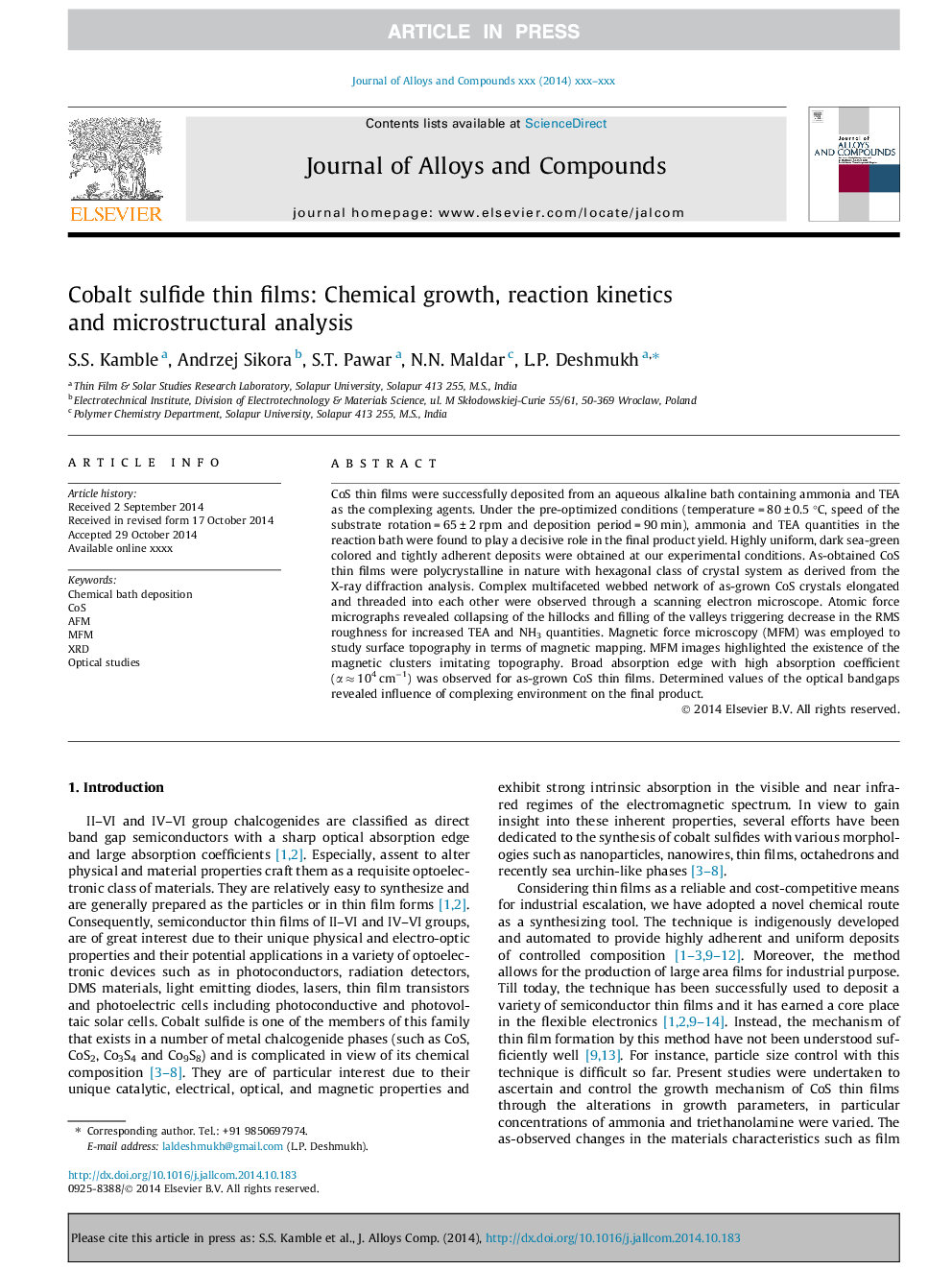| Article ID | Journal | Published Year | Pages | File Type |
|---|---|---|---|---|
| 7999965 | Journal of Alloys and Compounds | 2015 | 7 Pages |
Abstract
CoS thin films were successfully deposited from an aqueous alkaline bath containing ammonia and TEA as the complexing agents. Under the pre-optimized conditions (temperature = 80 ± 0.5 °C, speed of the substrate rotation = 65 ± 2 rpm and deposition period = 90 min), ammonia and TEA quantities in the reaction bath were found to play a decisive role in the final product yield. Highly uniform, dark sea-green colored and tightly adherent deposits were obtained at our experimental conditions. As-obtained CoS thin films were polycrystalline in nature with hexagonal class of crystal system as derived from the X-ray diffraction analysis. Complex multifaceted webbed network of as-grown CoS crystals elongated and threaded into each other were observed through a scanning electron microscope. Atomic force micrographs revealed collapsing of the hillocks and filling of the valleys triggering decrease in the RMS roughness for increased TEA and NH3 quantities. Magnetic force microscopy (MFM) was employed to study surface topography in terms of magnetic mapping. MFM images highlighted the existence of the magnetic clusters imitating topography. Broad absorption edge with high absorption coefficient (α â 104 cmâ1) was observed for as-grown CoS thin films. Determined values of the optical bandgaps revealed influence of complexing environment on the final product.
Related Topics
Physical Sciences and Engineering
Materials Science
Metals and Alloys
Authors
S.S. Kamble, Andrzej Sikora, S.T. Pawar, N.N. Maldar, L.P. Deshmukh,
